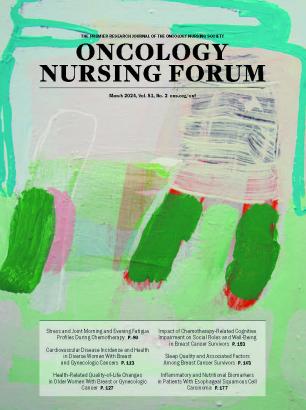Current issue
Number 2 / March 2024 Vol. 51, No. 2
Explore topics including:
- Cardiovascular disease and health among women with breast and gynecologic cancer
- The impact of chemotherapy-related cognitive impairment on social roles and well-being
- Inflammatory and nutritional biomarkers in patients with esophageal squamous cell carcinoma

Steroids for Moderate to Severe Diarrhea
-
Budesonide Prophylaxis--Immunotherapy-induced diarrhea
-
Vedolizumab: Unresolved or Refractory Diarrhea - Immunotherapy Induced Diarrhea
Budesonide Prophylaxis for IID
Budesonide is a corticosteroid that decreases inflammation in the digestive tract associated with diarrhea. It is a treatment option for Crohn's disease. Budesonide has been studied as prophylaxis for immune checkpoint inhibitor related enterocolitis. Research findings do not support Budesonide prophylaxis in this setting.
Vedolizumab: Unresolved or Refractory Diarrhea for IID
Vedolizumab is an integrin receptor antagonist indicated for treatment of inflammatory bowel disease. It has been studied in the treatment of immune-mediated diarrhea and colitis with favorable results in response, reduced hospitalizations and shorter steroid use duration.
-
Dietary Fiber
Dietary Fiber for RID
Modification of dietary fiber has been studied for management of cancer treatment-related diarrhea and gastrointestinal toxicity.


